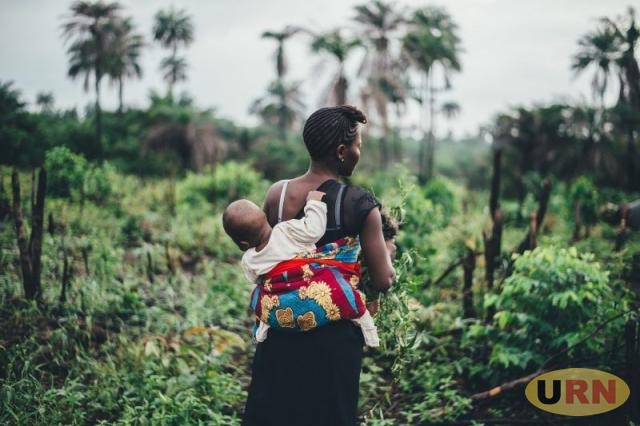
Kampala, Uganda | THE INDEPENDENT | The Inclusive Green Economy Network-East Africa (IGEN-EA) calls upon East African governments to invest in green economic sectors that drive women’s participation in the economy.
In its International Women’s Day 2024, IGEN-EA which is a coalition of civil society organizations and private sector entities says women should be prepared to take up more lucrative jobs in the Energy sector as the region transitions to cleaner energy options.
IGEN-EA, which has members from Uganda, Kenya, and Tanzania, is currently hosted by Africa Institute for Energy Governance (AFIEGO) urges East African governments to increase investments in green economic sectors such as agriculture, fisheries, clean energy, tourism, and others that employ the majority of women.
The network members are also calling on the East African governments to address barriers to women’s participation in green economic sectors.
The call comes in support of several reports that have called for a formulation of policies to enable women to participate in the green economy.
According to the United Nations Environment Programme (UNEP), a green economy is defined as low-carbon, resource-efficient efficient, and socially inclusive.
In a green economy, growth in employment and income are driven by public and private investment into such economic activities, infrastructure, and assets that allow reduced carbon emissions and pollution, enhanced energy and resource efficiency, and prevention of the loss of biodiversity and ecosystem services.
In 2021, a report by UN Women and the African Development Bank (AfDB) said Women are well positioned in some of the sectors where green jobs will be created.
However, the report observed women are underrepresented in key sectors of the green economy that will offer the best green jobs. It said sectors most likely to create higher-end green jobs include energy (especially wind and solar), transportation, construction, and some niche areas of services (e.g., green advisory).
According to the report, women are overrepresented in agriculture, waste management, and certain areas of renewable energy (biomass), which are likely to create mostly lower-end jobs.
Janepher Baitwamasa of Navigators for Development Association (NAVODA)-Uganda, a member organization of IGEN-EA says women in East Africa are still faced with the challenge of land ownership, which greatly hampers their earning power from organic agriculture.
“In Uganda, only 26% of women own titled land while only 25% and 33% own agricultural land in Kenya and Tanzania respectively. In Tanzania, only 9% of women solely own land, with the majority holding joint ownership of land,”
The issue of low levels of women owning land is deeply rooted in our traditions, where land inheritance typically favors men. This dominance extends to decision-making regarding land use, leaving women with limited control. East African governments must work with other stakeholders to increase women’s ownership of land so that they can better participate in organic agriculture.”
Lois Sabila from the Oil Refinery Residents Association, a member organization of IGEN-EA is of the view that women’s participation in the clean energy sector remains low.
“In Uganda for instance, only 28% of women work in the distributed renewable energy [DRE] sector that covers the off-grid sector.
In Kenya, only 41% work in the DRE sector while in Tanzania, only 20% are employed in the energy sector. Some businesses in the distributed renewable energy sector such as selling small solar systems, bigger solar home systems, and others do not require high levels of technical skills or high capital requirements,” she revealed.
However, because women often aren’t economically empowered, their participation in renewable energy ventures is limited. East African governments should provide special funds and skilling to enhance women’s participation in the clean energy sector.” Barbara Kembabazi of AFIEGO says women bear the brunt of limited access to clean cooking energy.
The majority of women in East Africa cook with firewood, which harms their health and takes away time they could have used to engage in green economic activities. “East African governments should provide women with clean cooking options to foster gender justice.”
Hellen Lubowa, from the Uganda Community Tourism Association (UCOTA), a member organization of IGEN-EA, says women in the tourism sector face challenges such as limited access to training and capacity building opportunities.
“There is a need for policies and programs that promote gender equality and empower women to fully participate in and benefit from the tourism industry,” she suggested.
Rehema Peters of Partnerships for a Green Future-Tanzania said women’s participation in the economy is hindered by poor childcare systems.
“A lot of women fail to maximize their potential as they need to divide their attention between professional and domestic duties. East African governments should mandate employers to put in place childcare facilities to enhance women’s participation in green economic activities” Said Peters.
IGEN-EA remains committed to advocating for gender equality and women’s participation in key green economic sectors. We urge the East African governments to take decisive action to ensure that women are not left behind while they are greening their countries’ economies.
The transition to a green economy will create many new jobs around the world, including in sub-Saharan Africa. But will women share in these new jobs, and will the economic transformation help them move into higher-paid, more stable jobs that require more education and skills?
In November 2023, the African Natural Resources Management and Investment Centre (ANRC) of the African Development Bank (AfDB) and the UN Women’s West and Central Africa Regional Office released a Uganda report on green jobs for women.
It said Uganda’s Green Growth Development Strategy aims to operationalize a green economy set out in its Vision 2040 and the third National Development Plan covering a time horizon of fifteen years.
An implementation roadmap and action plan to support the strategy is also being developed by the Global Green Growth Institute to sequence interventions for the short-term, medium-term, and long-term as it inclusively pursues economic development.
The government has identified four sectors with high growth potential that can best contribute to the development of a green economy. These include agriculture, forestry, energy, and tourism.
The report said all the sectors have a high potential to create a significant number of green jobs for women. It however noted that the main barriers preventing women from accessing green job opportunities include: women’s predominantly low-paying jobs and low-value stages of the value chains; women’s unpaid care work; customary practices that limit women’s access to and ownership of land and other productive assets; limited access to educational opportunities and technical skills in various fields; and women’s predominance in more vulnerable employment and informal work.
*******
URN
 The Independent Uganda: You get the Truth we Pay the Price
The Independent Uganda: You get the Truth we Pay the Price



